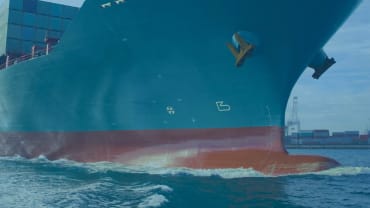In the case of Hitachi Zosen Inova AG v John Sisk & Son Ltd [2019] the Technology & Construction Court held that, even though an earlier adjudication had concluded that a variation was valid and valued at £nil for want of substantiation, the referral of a dispute to a second adjudication as to the proper valuation of that variation was not the same or substantially the same dispute.
The facts
Hitachi engaged Sisk to provide design and construction services in connection with a power station in Yorkshire. In terms of Clause 30 of the contract Sisk was entitled to claim payments for additional works (called "Events") subject to the provision of detailed evidence to Hitachi. Various disputes arose in connection with the contract resulting in no fewer than eight adjudications.
In the second adjudication in 2015, Sisk sought payment in relation to a number of variations including Event 1176 (acceleration works) which it valued at just over £1 million. This was rejected by Hitachi who said that Sisk had been overpaid for the contract. The adjudicator decided that Event 1176 was a variation which required valuation. However, along with many other of the referred Events, the substantiation provided by Sisk for Event 1176 fell short of what was required by clause 30 and as such the adjudicator was unable to arrive at a valuation and valued Event 1176 at £nil.
In November 2017 Sisk referred a dispute to adjudication (the eighth adjudication between the parties) seeking payment for Event 1176 with new supporting documentation. Sisk relied on the earlier decision that Event 1176 was a variation and sought payment of £994,572.19 in additional costs. Hitachi challenged the adjudicator's jurisdiction arguing that the claim was the same or substantially the same as that advanced in the second adjudication, namely a claim for additional payment in respect of Event 1176. The Adjudicator (who was the same as in the second adjudication) rejected Hitachi's jurisdictional challenge. He decided that Sisk had substantiated a claim of £825,703.17 and ordered Hitachi to pay that amount.
The TCC decision
Hitachi challenged the enforcement in the High Court. Stuart-Smith J concluded that the eighth adjudicator did have jurisdiction to decide the dispute. He reviewed the relevant authorities relying in particular on Quietfield Ltd v Vascroft Construction Limited in which the court emphasised the paramount importance of the decision of the first adjudicator and the fact that whether two disputes are substantially the same is a question of fact and degree.
Stuart-Smith J considered that there were two questions to be answered.
- What did the adjudicator in the second adjudication decide about Event 1176?
The court held that the adjudicator in the second adjudication had decided that (i) Event 1176 was a variation that required valuation and (ii) for want of evidence, no sum was payable to Sisk pursuant to Payment Application 6 for Event 1176. He did not decide the valuation of Event 1176 for any other purpose than in the context of the claim pursuant to Payment Application 6. - Was the dispute that was referred in the eighth adjudication the same or substantially the same as the dispute decided by the adjudicator in the second adjudication about Event 1176?
The referred dispute in the eighth adjudication was the valuation of Event 1176. That was precisely what the adjudicator had declined to decide in the second adjudication for want of substantiating evidence at the time. They were therefore not the same dispute. Nor were they "substantially the same" dispute. Once it is recognised that there was no valuation decision at all in the second adjudication it became clear that, in the matter of the value to be attributed to and recovered for Event 1176, there was no overlap at all. It is only if one compares what was referred in each adjudication that "a misleading and irrelevant similarity" between the referred disputes appears. ‰ÛÄ
The judge considered that, on Hitachi's case, having misjudged the evidence to substantiate a valuation for Event 1176 the consequence for Sisk would be that it would automatically be prevented from obtaining payment for work it had properly done pursuant to an accepted Variation under the Contract either forever or until its application for final payment. The court considered this to be draconian and described this as "a contractual trip wire" that required clear contractual language to be enforceable, particularly given the purpose of adjudication which was to maintain cash flow.
Comments
This decision provides useful guidance in considering whether two disputes are the same or substantially the same. The decision may provide comfort to parties that they might have a second chance to refer a matter to adjudication if they feel that the first adjudicator left some part of the claim undecided (including for want of substantiation) or if new evidence becomes available. This will depend on the facts and circumstances of the case and the precise wording of the first adjudicator's decision and so it remains best practice for a referring party to fully substantiate its claim from the outset.
Contributors
Partner
Senior Associate













